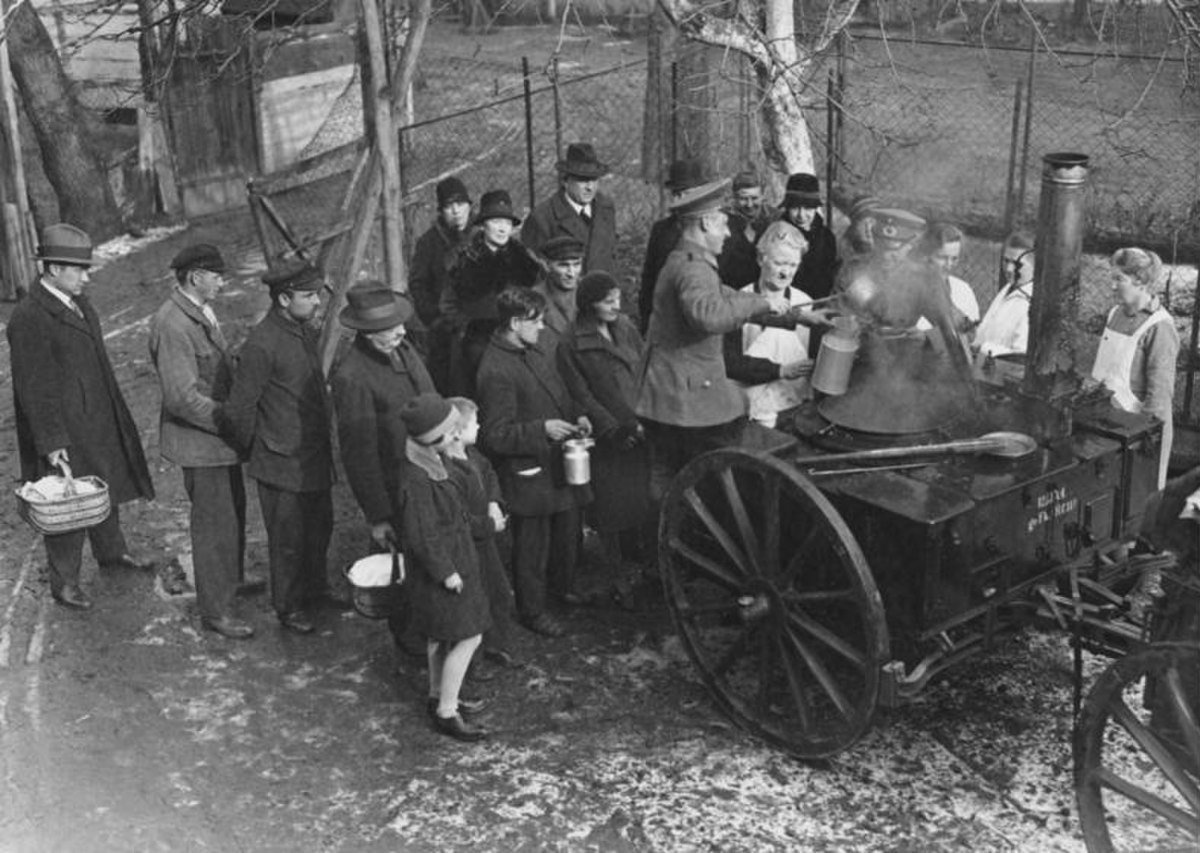
Great Depression and Political Crisis
GermanyThe Wall Street Crash of 1929 marked the beginning of the worldwide Great Depression, which hit Germany as hard as any nation. In July 1931, the Darmstätter und Nationalbank – one of the biggest German banks – failed. In early 1932, the number of unemployed had soared to more than 6,000,000.
On top of the collapsing economy came a political crisis: the political parties represented in the Reichstag were unable to build a governing majority in the face of escalating extremism from the far right (the Nazis, NSDAP). In March 1930, President Hindenburg appointed Heinrich Brüning Chancellor, invoking article 48 of Weimar's constitution, which allowed him to override the Parliament. To push through his package of austerity measures against a majority of Social Democrats, Communists and the NSDAP (Nazis), Brüning made use of emergency decrees and dissolved Parliament. In March and April 1932, Hindenburg was re-elected in the German presidential election of 1932.
The Nazi Party was the largest party in the national elections of 1932. On 31 July 1932 it received 37.3% of the votes, and in the election on 6 November 1932 it received less, but still the largest share, 33.1%, making it the biggest party in the Reichstag. The Communist KPD came third, with 15%. Together, the anti-democratic parties of the far right were now able to hold a considerable share of seats in Parliament, but they were at sword's point with the political left, fighting it out in the streets. The Nazis were particularly successful among Protestants, among unemployed young voters, among the lower middle class in the cities and among the rural population. It was weakest in Catholic areas and in large cities. On 30 January 1933, pressured by former Chancellor Franz von Papen and other conservatives, President Hindenburg appointed Hitler as Chancellor.
